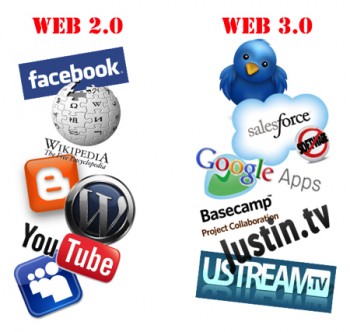No central point of control
Middlemen are removed from the equation, blockchains like Ethereum provide a trust-less platform where the rules are unbreakable and data is fully encrypted. Alphabet and Apple will no longer have control of user data. No government or entity will have the ability to kill sites and services; and no single individual can control the identities of others.
 Ownership of data
Ownership of data
End users will regain complete control of data and have the security of encryption. Information can then be shared on a case-by-case and permissioned basis.
At present, big companies like Amazon and Facebook have factories of servers storing information on dietary preferences, income, interests, credit card details and more. It’s not merely to improve their services — marketers and advertisers pay billions each year for the data.
Dramatic reduction in hacks and data breaches: Because data will be decentralized and distributed, hackers would need to turn off the entire network, while state-sponsored tools such as Vault7, used by the three-letter agencies, would be rendered obsolete.
At present, internet companies are compelled to hand over user data or succumb to having the entire database scrutinized. These data intrusions aren’t just limited to major security threats such as terrorism; in 2017, Coinbase took the IRS to court over its demand to see the data of over 15,000 customers.
Interoperability
Applications will be easy to customize and device-agnostic, capable of running on smartphones, TVs, automobiles, microwaves and smart sensors. At present, applications are OS-specific, and are often limited to a single operating system. For instance, many Android cryptocurrency wallets are unavailable on iOs, causing frustration for consumers who use multiple devices. It adds expenses for developers tasked with issuing multiple iterations and updates of their software.
Permissionless blockchains
Anyone can create an address and interact with the network. The power to access permissionless chains cannot be overstated. Users will not be barred on account of geography, income, gender, orientation or a host of other sociological and demographic factors. Wealth and other digital assets can be transferred cross-border, quickly and efficiently, anywhere in the world.
Uninterrupted service
Account suspension and distributed denial of service are dramatically reduced. Because there’s no single point of failure, service disruption will be minimal. Data will be stored on distributed nodes to ensure redundancy and multiple backups will prevent server failure or seizure.
Continue reading...
Middlemen are removed from the equation, blockchains like Ethereum provide a trust-less platform where the rules are unbreakable and data is fully encrypted. Alphabet and Apple will no longer have control of user data. No government or entity will have the ability to kill sites and services; and no single individual can control the identities of others.
 Ownership of data
Ownership of data End users will regain complete control of data and have the security of encryption. Information can then be shared on a case-by-case and permissioned basis.
At present, big companies like Amazon and Facebook have factories of servers storing information on dietary preferences, income, interests, credit card details and more. It’s not merely to improve their services — marketers and advertisers pay billions each year for the data.
Dramatic reduction in hacks and data breaches: Because data will be decentralized and distributed, hackers would need to turn off the entire network, while state-sponsored tools such as Vault7, used by the three-letter agencies, would be rendered obsolete.
At present, internet companies are compelled to hand over user data or succumb to having the entire database scrutinized. These data intrusions aren’t just limited to major security threats such as terrorism; in 2017, Coinbase took the IRS to court over its demand to see the data of over 15,000 customers.
Interoperability
Applications will be easy to customize and device-agnostic, capable of running on smartphones, TVs, automobiles, microwaves and smart sensors. At present, applications are OS-specific, and are often limited to a single operating system. For instance, many Android cryptocurrency wallets are unavailable on iOs, causing frustration for consumers who use multiple devices. It adds expenses for developers tasked with issuing multiple iterations and updates of their software.
Permissionless blockchains
Anyone can create an address and interact with the network. The power to access permissionless chains cannot be overstated. Users will not be barred on account of geography, income, gender, orientation or a host of other sociological and demographic factors. Wealth and other digital assets can be transferred cross-border, quickly and efficiently, anywhere in the world.
Uninterrupted service
Account suspension and distributed denial of service are dramatically reduced. Because there’s no single point of failure, service disruption will be minimal. Data will be stored on distributed nodes to ensure redundancy and multiple backups will prevent server failure or seizure.
Continue reading...











